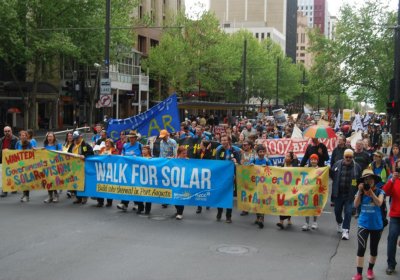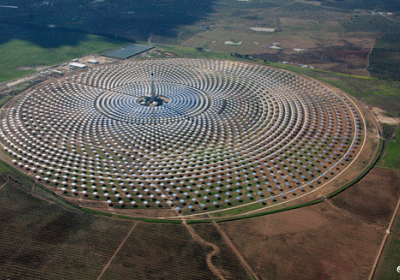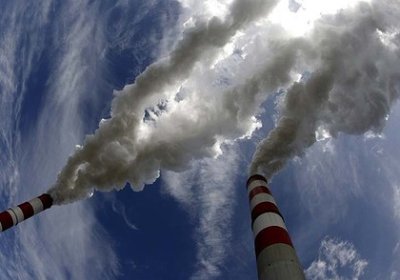Markets are neither free nor efficient, and they are bad for the environment. Market choice is not cheap. While that may sound like a timeless left-wing credo, it's also a simple assessment of Australia's 20 years of privatisation and market-oriented restructure of electricity supply.
Outside small left-wing dissident circles (from Keynesians to Marxists), operating the power industry according to market principles has become an unquestioned and unspoken assumption.
Renewable energy
The gulf between the science and the politics of climate change has never been wider. Consider the Arctic ice cap, which has lost half its volume in the five years from 2005. Experts say the Arctic ice cap is now in a “death spiral”. The region is warming two to four times faster than the global average.
For anyone who knows the science, it’s settled — fossil fuels need to be banished fast from our energy mix. But how do we achieve it? Can we rely on renewable sources such as wind and solar? Or must humanity turn to nuclear power?
That’s a controversy that has bubbled away for years among people who all accept the dangers of global warming. Now, from the energy sector in China, there’s hard new evidence bearing on this debate.
The experience in China shows that as a way of quickly replacing greenhouse-polluting fuels, renewable energy wins against nuclear, hands down.
Australia’s big electricity generators are feeling the squeeze of electricity demand falling in recent years and growing competition from renewable energy.
This year, some environmentalists criticised the federal government for scrapping the “contracts for closure” negotiations, which would have made the federal government compensate operators to close up to 2000 megawatts of coal-fired power stations. However, more than 2000 megawatts of coal power plant has now been closed or “mothballed” across the country without paying the contracts for closure.
Fifteen hundred people rallied on September 30 in Adelaide to support solar thermal power in Port Augusta to replace the ageing coal stations, set to retire. They welcomed about 80 people who walked the 328-kilometre journey from Port Augusta to draw attention to the issue.
A report published on July 23 calls for Australia to institute a moratorium on new fossil fuel developments as the centrepiece of a global campaign to phase out fossil fuels.
Hundreds attended the Melbourne, Sydney and Brisbane meetings to launch the latest report from climate research group Beyond Zero Emissions (BZE), Laggard to Leader: How Australia Can Lead the World to Zero Carbon Prosperity.
So now we have a carbon price in Australia. The sky hasn’t fallen in but neither are we getting anywhere near doing what needs to be done to respond to the climate change crisis.
Australia currently gets its energy in this mix:
• Fossil fuels: 95%, comprising coal: 39%, gas: 22%, petroleum: 35%
• Renewables: a miserable 5%.
According to the Labor government's own projections, with the carbon price, by 2035 Australia's energy mix will be:
• Fossil fuels: 91%, comprising less coal at 21%, more gas at 35%, petroleum: 36%
• Renewables: rising slightly to 9%.
Right now, there is an opportunity to slash Australia’s carbon emissions by 5 million tonnes a year in one stroke. The city of Port Augusta in South Australia has all the right conditions to make it Australia’s first baseload renewable energy hub.
The two coal-fired power stations at Port Augusta are getting old. Industry experts say they may be forced to close as soon as 2015.
More than 300 people of all ages gathered in Adelaide on September 24 calling for concentrating solar thermal (CST) technology to replace Port Augusta’s ageing coal fired power stations.
The action was organised by several environment groups, including the Australian Youth Climate Coalition, the Climate Emergency Action Network, the Socialist Alliance, Resistance and the Young Greens. The crowd met in Adelaide’s Rymill Park and took to the streets in a colourful, rhythmic parade, featuring a moving solar thermal tower.
The casual observer might easily conclude that there are just two clear sides in the parliamentary debate over the Labor/Greens carbon price deal.
But there is a lot more to the debate than this.
Clearly the Greens are in favour, and appear to have won over PM Julia Gillard’s government to an interim carbon tax.
On the other hand, opposition leader Tony Abbott has promised a Tea Party-style uprising against it. Abbott will push to rouse a fascistic “people’s” movement to try to bury the deal.
The statement below was released by the Socialist Alliance on March 6.
* * *
The carbon price framework recently agreed to by the ALP and the Greens is a step in the wrong direction.
This is not because, as the Coalition says, the economy — read the profits of big business — cannot afford to cut emissions. It’s because the framework will be counterproductive to real action on climate change.
The highest prices now being discussed will simply stimulate a mass rollout of gas, extending Australia's commitment to fossil fuels at the expense of renewable energy.
More than 150 people packed into a Wollongong university lecture theatre on October 21 for the Wollongong launch of the Zero Carbon Australia 2020 Stationary Energy Plan (ZCA2020).
Launches of the plan in Melbourne and Sydney that attracted about 700 and 1000 people respectively, and on October 15 it won the Mercedes-Benz Australian Environmental Research Award.
The plan is the product of a collaboration between the University of Melbourne Energy Research Institute and Beyond Zero Emissions (BZE).
- Previous page
- Page 8
- Next page











